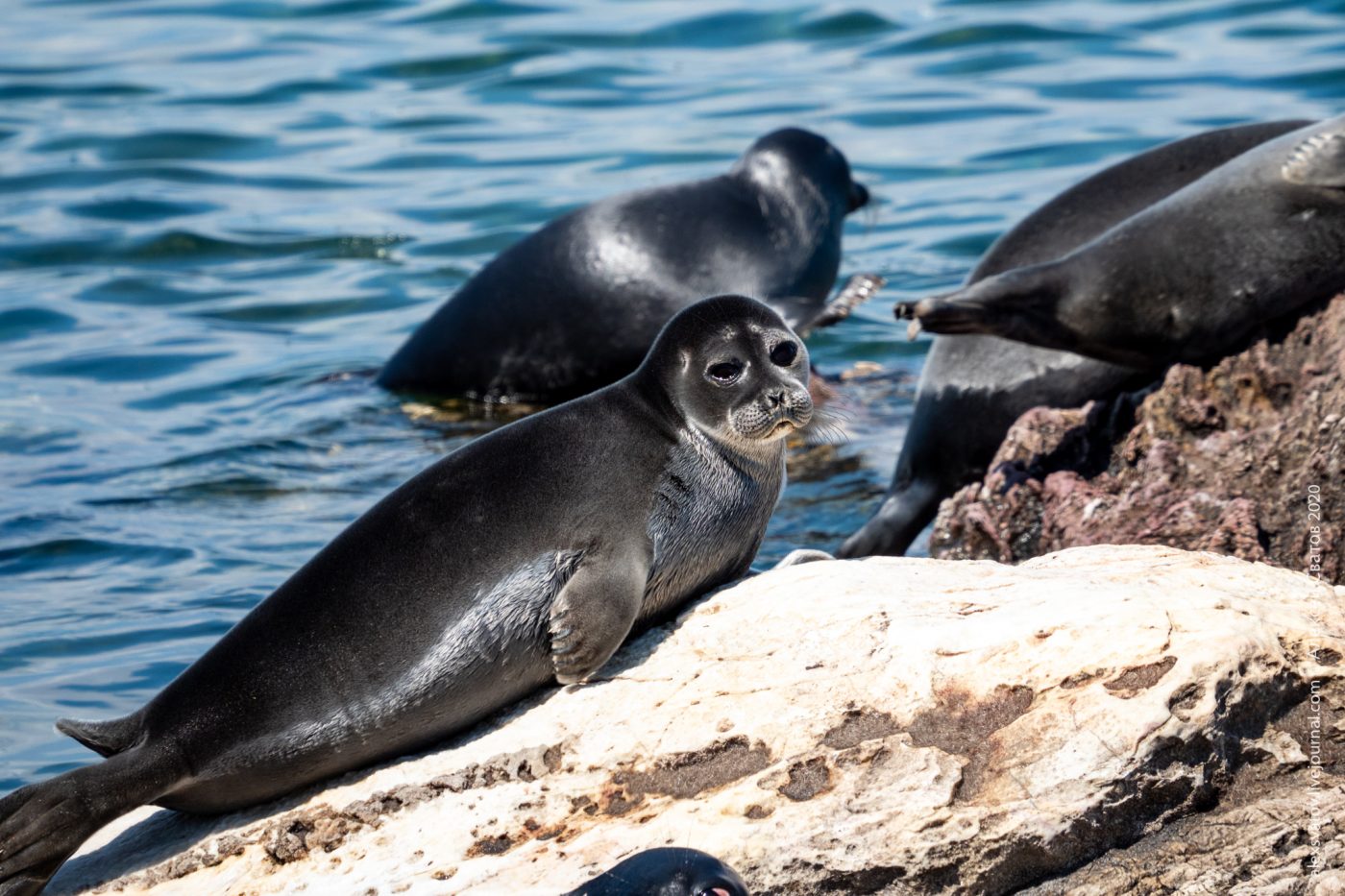The Baikal seal is an unique animal. It’s impossible to meet it anywhere in the world besides Baikal and it’s the only one Baikal mammal.
Despite its uniqueness, the Baikal seal faces a lot of difficulties right now: rising anthropogenic burden on the lake and shorelands leads to the water, soil and air pollution of the habitat; global climate change deprives the seal of the ice, which is necessary during her breeding and shedding, and fish which she feeds on. Fishing nets and poaching is another threat to the population of the animal (specie). However, today nobody knows how this animal with high level of emotional intelligence feels, if it manages to adapt to the changing environment and what consequences are possible for the wellbeing of the entire population.
That’s why Lake Baikal Foundation initiated in 2018 the first integrated scientific programme with involvement of researchers and specialists for studying the unique Baikal seal.
As a part of the programme in 2019 the expedition for studying the unique seal was organized. 15 wild seals were tagged with satellite transmitters in order to know more about which parts of the lake the seals use during different seasons and what kind of ways of migration they have. The researchers have collected 174 samples of biological material of the wild seals for further researches. Such studies of the wild Baikal seal were conducted for the first time.
Now the scientists face another difficult task – to run tests based on the collected biological materials. Two stages of the research have already been finished: toxicological and virological tests results have been received. The results indicated high levels of accumulated high-density metals and pesticides in seal bodies, due to which the animal may be amenable to the diseases. On the other hand, a virus analysis hasn’t revealed a wide spread of virus diseases among the studied seals.
The next important step is genetic analysis. After the DNA of the studied seals will be interpreted, they may be compared with each other. Such analysis will help to determine biological diversity of the specie: the bigger it is, the more sustainable the specie is, i.e. to more changes the specie can adapt. In addition, it will shed light if the specie subdivides into separate populations. If this hypothesis about species diversity is confirmed, the special measures for monitoring and protection of the unique Baikal seal may be required.
Lake Baikal Foundation explains: these studies are essential to take more reasonable steps for appropriate preservation of the unique specie and prevent critical changes in its numbers.
In total for conducting genetic studies 1.5 million rubles is needed. Right now the Foundation «Nuzhna Pomosch» partially helps to solve this task. The fundraising campaign for buying reagents and expendable supplies without which it’s impossible to carry out lab tests has been launched.
Information about which reagents money will be spent on can be found on the Foundation’s website. Anyone can contribute by making a one-time or recurring donation. Recurring payments are especially important because they may be almost invisible for the donors but regardless of the sum are vital for achieving the final goal.
Photo: Alexey Svatov


